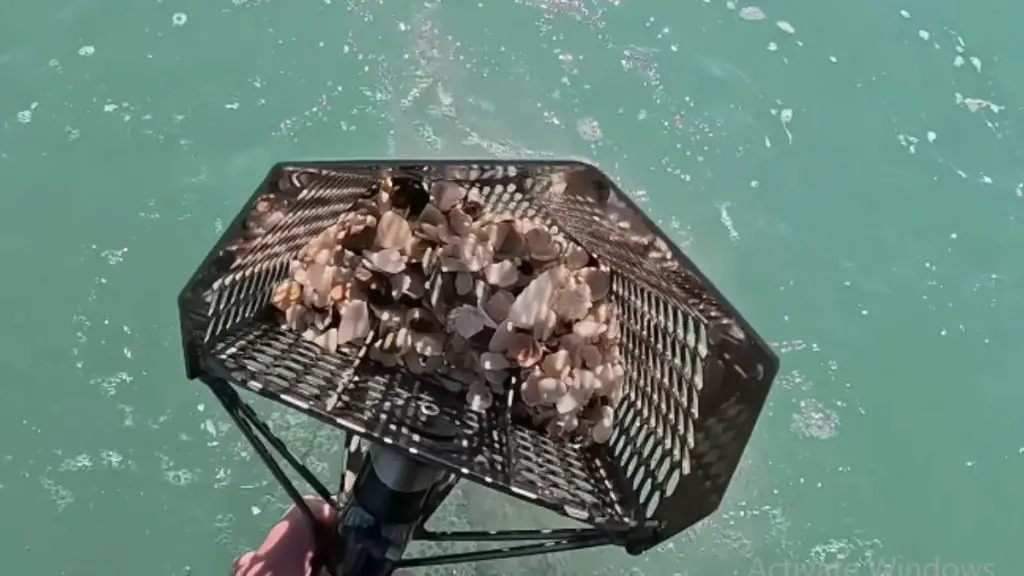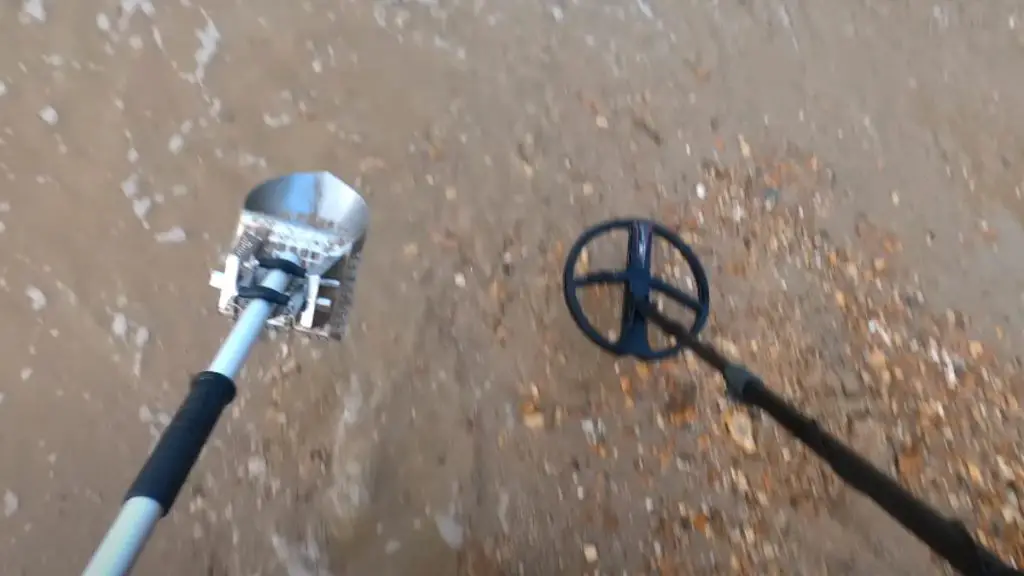This Southern state, brimming with stories from the Civil War, early American settlements, and Native American heritage, offers a unique canvas for metal detecting adventures.
Whether you’re a seasoned detectorist or a curious newcomer, Alabama’s diverse landscapes and historical richness present a captivating hunt for hidden relics.
In this guide we’ll discover the best places, clubs for metal detection, other considerations and much more.
Let’s begin!
Metal Detecting In Alabama

Metal detecting in Alabama can be a thrilling hobby because the state has a rich history and diverse areas to explore.
Here, you have the chance to find relics from the Civil War, coins, and artifacts from the state’s early days.
Alabama was involved in many historical events, which means it has lots of hidden treasures waiting to be discovered.
Alabama’s population is around 5 million people, and it’s full of friendly communities that often gather for metal detecting events.
Some of the best places for metal detecting are the beaches along the Gulf of Mexico, old battlefields, and near historical sites.
However, it’s essential to get permission before exploring private property or protected historical sites.
Many folks are drawn to metal detecting in Alabama to find cool stuff, and to learn about history and connect with the past.
If you’re detecting in Alabama, remember to follow the laws. State parks have specific rules, and you might need a permit.
Also, it’s illegal to metal detect at archaeological sites and Native American burial grounds.
Is Metal Detection Legal In Alabama
Metal detecting in Alabama is legal, but there are specific regulations that enthusiasts must follow to ensure they’re in compliance with state laws and respect property rights.
For public lands, including parks and beaches, it’s essential to check with local park services or city guidelines, as metal detecting is sometimes allowed with restrictions or special permits may be required.
When it comes to state lands and historical sites, be aware that metal detecting is strictly regulated to protect historical artifacts.
The Archaeological Resources Protection Act (ARPA) and the Alabama Historical Commission often place prohibitions on metal detecting in these areas, particularly if they could potentially disturb sites of historical significance.
For those who wish to use a metal detector on private property, it’s critical to obtain permission from the landowner beforehand.
Failing to do so could result in trespassing charges. Furthermore, if you find any items, they belong to the property owner unless an alternative agreement is made.
Also, any items found that are over 100 years old or could be considered an artifact fall under additional regulations, and you may be required to report such findings to the local authorities.
Best Places for Metal Detection in Alabama
Here are the best places for metal detection in Alabama:
1. Abandoned Buildings and Structures
These sites can be goldmines for finding relics, old coins, and artifacts. Always ensure you have permission to explore these areas.
2. Abandoned Parks
Similar to abandoned buildings, these parks may hold historical artifacts and items left behind over the years.
3. Old Wagon Train Routes
These routes were heavily traveled in the past and can be great spots to find items from travelers and settlers.
4. Native American Trails
Areas with historical significance related to Native American history. Potential for finding artifacts, but be mindful of laws regarding detection on Native lands.
5. Natural Disaster Destruction Sites
Sites affected by natural disasters might reveal hidden treasures moved from their original locations.
6. Alabama Beaches, Rivers, Lakes, and Creeks
Beaches like Orange Beach, Gulf Shores Beach, and Dauphin Island Public Beach are excellent for finding lost jewelry and coins.
Rivers such as the Black Warrior River and the Tennessee and Elk River also offer great opportunities, especially for those with waterproof metal detectors.
7. Schoolyards
Old schoolyards can be a source of recent and historical items, including coins and jewelry.
8. Civil War Sites
Given Alabama’s rich Civil War history, these sites can yield artifacts related to the war. Ensure you’re aware of the regulations regarding metal detecting in these areas.
9. Ghost Towns
Towns like Barnesville, Erie, and Vienna are known as ghost towns in Alabama.
These abandoned places can be rich in historical artifacts. Permission from local authorities may be required.
Best Clubs for Metal Detection in Alabama
Here are some of the best clubs:
1. Alabama Gold Camp
Location: Cragford, AL
Activities: Offers opportunities for metal detecting, prospecting for gold, and finding other treasures.
Access to a large area known for gold findings, camping facilities, and a community of like-minded individuals.
2. Madison County Coin Club
Location: Huntsville, AL
Activities: Focuses on coin collecting and metal detecting, with regular meetings and events.
Educational programs, auctions, and a platform to exchange information about metal detecting and coin collecting.
3. North Alabama GPAA Chapter
Location: North Alabama
Activities: Part of the Gold Prospectors Association of America, focusing on gold prospecting and metal detecting.
Access to GPAA claims across the country, local outings, and the chance to learn from experienced prospectors.
4. Sahrara Club Mobile Alabama
Location: Mobile, AL
Meetings: First Tuesday of every month at the Golden Corral in Tillmans Corner at 7:00 PM.
A place for hobbyists to meet, share experiences, and organize detecting outings.
Is there any buried treasure in Alabama?
While there are many legends and stories of buried treasure in the United States, including in Alabama, most of these tales are myths or unconfirmed accounts.
Among the famous stories is the legend of the lost Confederate gold, supposedly hidden during the Civil War.
However, there is no verified evidence of such treasures, and professional archeologists and historians advise against treasure hunting without appropriate permissions.
Treasure enthusiasts should always respect private property and historic sites, and should understand that finding actual buried treasure is exceedingly rare.
What Are Essential Equipments You Need for Metal Detection
For metal detection, several essential pieces of equipment will help you on your treasure-hunting journey.
Firstly, you’ll need a good metal detector; it’s your primary tool. Choose one that’s comfortable for you to carry and has adjustable sensitivity settings.
A pinpointer is also handy. This smaller device helps to locate items more precisely once your metal detector has found something.
Next are digging tools such as a trowel or a digging knife; these are used to unearth items without damaging them.
You should also bring gloves to protect your hands while digging. Moreover, a finds pouch or a container is useful to safely store any treasures you discover.
Finally, consider headphones to hear the detector’s signals better in noisy areas.
So, the right equipment can make your metal detecting experience more efficient and enjoyable.
National Parks in Alabama
No metal detecting activities are allowed in these areas. Here’s a table for various national parks in Alabama:
| National Park/Recreational Area | Metal Detection Opportunity |
| Birmingham Civil Rights National Monument | Not Allowed |
| Freedom Riders National Monument | Not Allowed |
| Horseshoe Bend National Military Park | Not Allowed |
| Little River Canyon National Preserve | Not Allowed |
| Muscle Shoals National Heritage Area | Not Allowed |
| Natchez Trace National Scenic Trail | Not Allowed |
| Natchez Trace Parkway | Not Allowed |
| Russell Cave National Monument | Not Allowed |
| Selma To Montgomery National Historic Trail | Not Allowed |
| Trail Of Tears National Historic Trail | Not Allowed |
| Tuskegee Airmen National Historic Site | Not Allowed |
| Tuskegee Institute National Historic Site | Not Allowed |
This restriction is in place to protect the natural and historical resources within these parks.
For detailed information and updates, you should directly contact the specific national park or monument before planning any metal detecting activities.
You can also find our guide on metal detection in Alaska, In Georgia, metal detection in Mississippi, and In Iowa; for successful hunt.
Final Thoughts
Metal detecting in Alabama is a fun and rewarding hobby that offers more than the thrill of discovery.
It is a chance to explore the outdoors, learn about history, and maybe even find a hidden treasure.
Now I’d like to hear from you!
Which place are you going to detect metal first? What was your first piece of hunt ever?
Let me know in the comment..

Frederick Perez is the founder of Scrape Dude. He loves exploring and finding hidden treasures in unexpected places. Frederick has been dumpster diving and gold panning for years, turning his hobby into our website to share his adventures. He’s known for his friendly advice and exciting stories, inspiring others to discover the joy in these unique hobbies. His expertise makes Scrape Dude a trusted and fun place to learn and explore.


